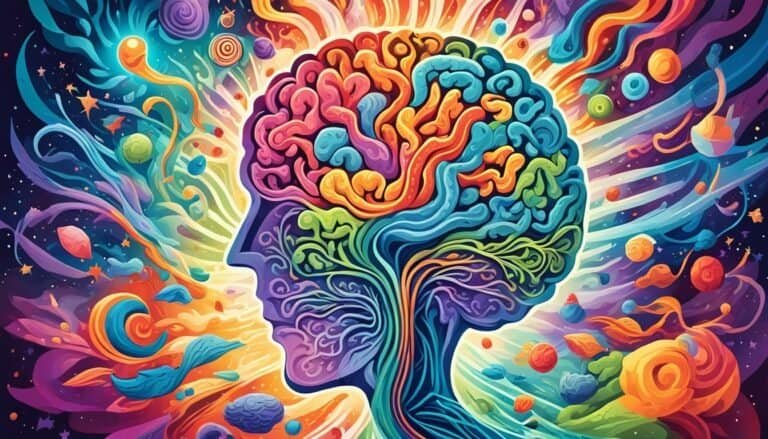William Shakespeare Personality Type
William Shakespeare's personality type reflects a complex blend of creativity, empathy, and depth. Influenced by his upbringing in Stratford-upon-Avon and classical education, he honed his storytelling skills. Shakespeare's narratives transcend time, delving into universal human emotions with poetic brilliance. His characters engage in intricate verbal and non-verbal interactions, showcasing his understanding of complex relationships. Through nuanced character development, he evokes deep audience empathy. Shakespeare's enduring legacy lies in his exploration of universal themes and human nature, impacting not just his era but continuing to inspire across generations. Explore further to uncover the multi-faceted persona behind his timeless works.
Key Takeaways
- Shakespeare's personality type is inferred through his works and historical accounts.
- He likely possessed a complex and multifaceted personality.
- Traits such as creativity, empathy, and emotional depth are attributed to him.
- His ability to understand human nature suggests a high level of emotional intelligence.
- Shakespeare's personality type is often characterized as imaginative, introspective, and insightful.
Early Life and Influences
William Shakespeare's early life and influences shaped the foundation of his future works, providing a glimpse into the factors that molded the renowned playwright. Childhood experiences played a significant role in shaping Shakespeare's perspective and storytelling abilities. Growing up in a bustling household in Stratford-upon-Avon, he was surrounded by various personalities and situations that likely influenced the diverse characters and intricate plots in his plays.
Shakespeare's educational background also played a pivotal role in his development as a writer. Attending the local grammar school, he'd have been exposed to classical literature, rhetoric, and Latin, which laid the groundwork for his later works filled with poetic language and deep philosophical insights. His keen interest in learning and literature during his formative years likely fueled his passion for storytelling and drama, setting him on the path to becoming one of the most celebrated playwrights in history.
Creativity and Imagination
In exploring Shakespeare's domain of creativity and imagination, one immerses into a tapestry woven with intricate threads of inspiration and innovation. Shakespeare's artistic innovation is evident in his ability to craft narratives that transcend time and culture, delving into the depths of human emotion and experience. His literary brilliance shines through in the rich tapestries of language he weaves, creating characters and worlds that continue to captivate audiences centuries after his time.
Shakespeare's creativity wasn't bound by conventions but rather thrived on pushing the boundaries of what was thought possible in storytelling. His imagination knew no limits, allowing him to create works that are both timeless and universal in their appeal. The way he intertwined complex plots with profound themes showcases a mind that was constantly buzzing with new ideas and perspectives.
Through his artistic innovation and literary brilliance, Shakespeare revolutionized the world of literature, leaving behind a legacy that continues to inspire and awe generations of readers, writers, and artists.
Relationships and Interactions
Exploring Shakespeare's intricate web of creativity and imagination naturally leads to an in-depth examination of his dynamic relationships and interactions within his works. In his plays, communication dynamics play a pivotal role in shaping character interactions. Shakespeare masterfully weaves intricate dialogues that reveal the underlying social interactions between characters. The bard's characters often engage in complex verbal exchanges, showcasing power dynamics, conflicts, and alliances. Through these communication dynamics, Shakespeare immerses deep into the intricacies of human relationships, providing insight into the social norms and expectations of his time.
Moreover, Shakespeare's portrayal of social interactions extends beyond mere conversations. The way characters interact physically, through gestures, body language, and proximity, adds another layer of depth to their relationships. These non-verbal cues offer valuable insights into the characters' emotions and intentions, enriching the audience's understanding of the narrative. By carefully crafting these social interactions, Shakespeare creates a rich tapestry of relationships that resonate with audiences across centuries.
Emotions and Empathy
Exploring the emotional depths of Shakespeare's characters reveals an intricate tapestry of empathy and raw human sentiment. Shakespeare's emotional intelligence shines through his writing, as he intricately intertwines together the emotions of his characters with profound empathy.
In his works, you can see how he delves deep into the human psyche, exploring a wide range of emotions such as love, jealousy, anger, and despair.
One of the reasons Shakespeare's plays continue to resonate with audiences worldwide is his ability to tap into universal emotions that transcend time and place. His characters express a depth of feeling that allows readers and viewers to connect with them on a personal level, showcasing Shakespeare's remarkable empathy in writing.
Through his masterful storytelling and nuanced character development, Shakespeare invites you to step into the shoes of his characters, experiencing their joys and sorrows as if they were your own. This emotional connection is a proof to Shakespeare's enduring legacy as a playwright who understood the complexities of human emotions like few others.
Legacy and Impact
Shakespeare's legacy and impact on literature and culture are profound, shaping the way stories are told and emotions are portrayed for generations to come. His cultural significance lies in the universal themes he explored, such as love, jealousy, ambition, and betrayal, which continue to resonate with audiences worldwide. Through his plays and sonnets, Shakespeare not only captured the essence of human experiences but also probed into the complexity of human nature, leaving a lasting imprint on the literary world.
From a historical perspective, Shakespeare's influence during the Elizabethan era and beyond can't be overstated. His works weren't only popular in his time but also contributed to the development of the English language. Today, his plays are still performed globally, showcasing their enduring modern relevance. The themes he tackled, the characters he created, and the language he used continue to inspire writers, poets, and filmmakers, demonstrating the timelessness of his contributions to the arts.
Conclusion
So there you have it, dear reader, the personality type of William Shakespeare. A man of many talents, complexities, and contradictions, he left a lasting legacy that continues to captivate audiences centuries later.
His creativity and imagination knew no bounds, his relationships were both inspiring and tumultuous, and his emotions ran deep. But ultimately, Shakespeare's impact on the world of literature and culture can't be denied.
A true enigma, a true legend.








